Winter is just around the corner, and while Charlotte winters may be mild compared to other parts of the country, preparing your landscaping for the colder months is still essential. Winterization protects your plants and lawn from potential damage and sets the stage for a healthier and more vibrant yard when the warmer months return.
Here are five essential steps to effectively winterize your yard, protect your landscaping, and prepare to flourish again in the spring.
1. Protect Your Plants
One of the most essential steps in winterizing your yard is to protect your plants from frost, snow, and months of cold weather. In Charlotte’s climate, fluctuating temperatures can stress plants, shrubs, and grass.
• Mulch to Insulate: Mulching around trees, small shrubs, and garden beds provides an insulating layer that helps retain warmth and moisture, protecting roots from extreme temperature swings. Consider using organic mulch like pine bark, wood chips, or straw to enrich the soil as it decomposes.
• Cover Tender Plants: For particularly vulnerable plants, such as tropical varieties or recently planted shrubs, consider covering them with burlap or frost cloths during expected frost nights. These covers trap heat and create a barrier against cold winds, preventing freeze damage.
• Water Before Frost: Giving your plants a deep watering before the first frost arrives helps hydrate the roots, making them more resilient to cold temperatures. Proper moisture levels also prevent dehydration during dry spells.
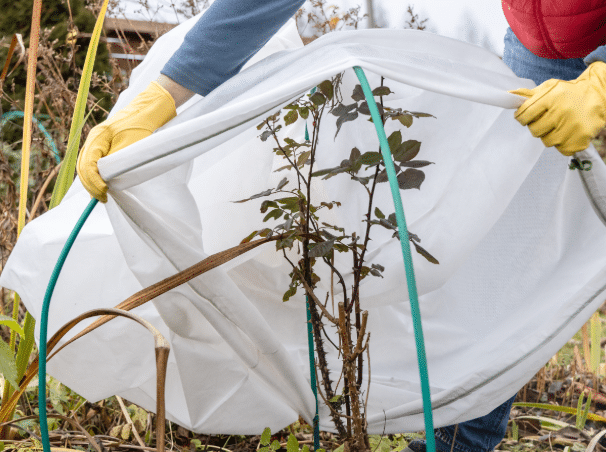
2. Prune for Health and Growth
Late fall is an ideal time for pruning. It allows plants to go dormant for the winter without added stress.
• Remove Dead or Damaged Branches: Pruning dead, damaged, or diseased branches prevents pests and diseases from spreading during the winter months, saving you time and effort in spring clean-up.
• Encourage Healthy Growth: Pruning can also help shape plants and shrubs, encouraging robust growth in spring. However, timing and technique are key. Not all plants benefit from late-season pruning. Some, such as spring-blooming shrubs, should wait until after their blooms are spent.
• Research Plant-Specific Needs: Reference the following Plant Material Reference Guide for more information about plants and trees that benefit from fall pruning and require different timelines.
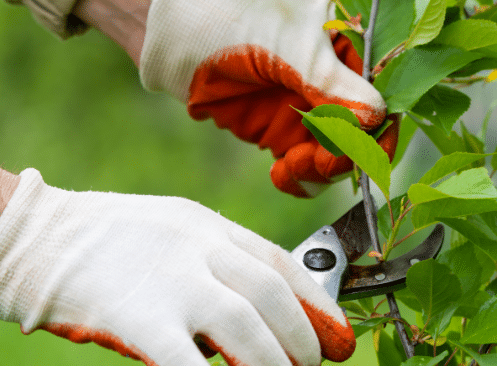
3. Fertilize and Treat Your Lawn
Winter is ideal for fertilizing and treating your lawn, especially if you have Fescue or Bermuda grass.
• Winter Fertilizer: Apply a winter-specific fertilizer that contains essential nutrients such as potassium, which helps grass survive the colder months. This nutrient promotes root growth and builds a strong foundation for lush, green growth in the spring.
• Prevention of Weeds: Applying pre-emergent herbicide can prevent winter weeds like clover and dandelions from sprouting. Fewer weeds mean your lawn can absorb nutrients without competition.
• Timely Application: The timing of fertilizer and herbicide application can be complex. A professional landscaper can ensure you apply the correct treatments at the right time for maximum lawn health.
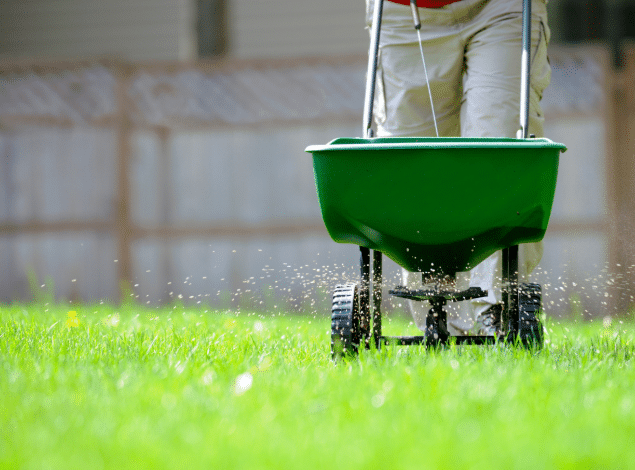
4. Prepare Your Irrigation System
As temperatures drop, it’s crucial to winterize your irrigation system to prevent costly damage from freezing pipes.
• Drain and Shut Off: To prevent freezing, turn off the water supply. Drain any remaining water from the system to avoid pipes bursting, which can lead to expensive repairs come spring.
• Blow Out the System: Many systems benefit from compressed air blowouts, where air is forced through the pipes to expel remaining water. This process is best left to professionals to ensure no damage to delicate components.
• Inspection for Efficiency: Professional irrigation consultants will inspect your system for potential issues that could affect its performance in the spring. Ensuring it’s ready for a smooth start-up saves time and frustration when the warmer months arrive.
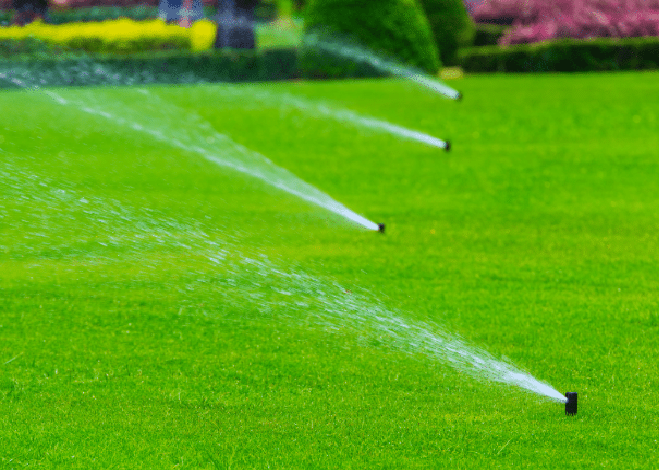
5. Plan for Spring Planting
Winter is an excellent time to start planning for the spring planting season.
•Evaluate Your Landscape: Look for areas needing new plants, trees, or shrubs. Consider what’s missing in your current landscape, such as seasonal color or pollinator-friendly plants, and plan accordingly.
• Choose Hardy Plants for Charlotte’s Climate: Consulting with a landscaping professional early in the season can help you determine the best varieties that thrive in Charlotte’s climate, from hardy perennials that return year after year to flowering shrubs that attract pollinators.
• Create a Planting Timeline: Plan to ensure your spring planting goes smoothly. Research the optimal planting times for each species and get ready to plant as soon as the threat of frost has passed.
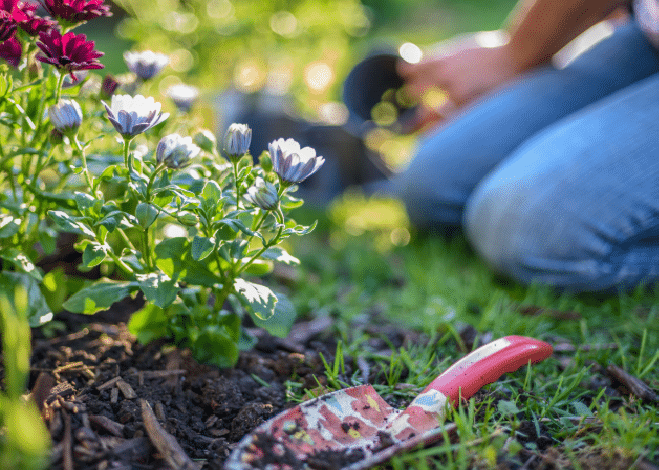
Frequently Asked Questions (FAQs)
1. Why is winterizing my yard so important?
Winterizing helps protect your landscaping from cold weather, frost, and freezing temperatures. It ensures that plants stay healthy during the dormant months and are ready to thrive once spring arrives. Proper winterization also prevents costly damage to plants, lawns, and irrigation systems.
2. How do I know when to prune my plants?
The best time to prune depends on the type of plant. Deciduous trees and shrubs can be pruned in late fall after they’ve dropped their leaves. However, spring-blooming plants should be pruned after they finish flowering. Consulting a professional can help you avoid pruning mistakes.
3. What should I use for mulching my garden beds?
Organic mulches such as wood chips, pine needles, or straw are ideal for insulating plants during the winter. Mulching also helps retain moisture and suppresses weeds while enriching the soil as it decomposes.
4. Can I fertilize my lawn in winter?
Yes, winterizing fertilizers help grasses stay healthy through cold months and encourage strong root growth. Fertilizing at the right time ensures your lawn is ready to thrive in the spring.
5. How do I prevent irrigation damage in winter?
The most important step is to drain the irrigation system and shut off the water supply. Some systems benefit from compressed air blowouts to clear out residual water. Hiring a professional for this task is best to avoid damaging delicate components.
Why Work with a Landscape Professional?
Winterizing your yard is a detailed process that can take significant time and effort. Hiring a professional saves you the labor-intensive work of trimming, mulching, covering delicate plants, and fertilizing. You also avoid common mistakes that could lead to plant damage, giving you peace of mind that your yard is well-prepared to withstand the winter months and properly bloom come spring.
With over 30 years of experience in the Charlotte metro area, G&G Landscape Solutions offers full-service landscape design, installation, and maintenance to create beautiful, customized outdoor spaces tailored to each customer’s vision. Contact us today for a free consultation with one of our expert Outdoor Living Consultants, and let us help protect and prepare your outdoor space this season.
